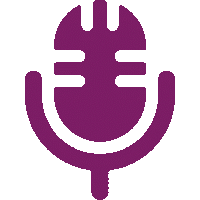Full Schedule
Full Schedule
- Friday, October 24, 2025
-
6:00 AM - 6:45 AM PDTWellness Class- Strength & Stretch
-
6:00 AM - 6:30 PM PDTMeditation & Quiet Room
-
6:00 AM - 6:30 PM PDTRegistration Open
-
6:30 AM - 8:30 AM PDTEnVision Faculty & Trainee Breakfast
-
7:00 AM - 9:30 AM PDTDIGEST Faculty & Trainee Breakfast
-
7:45 AM - 9:00 AM PDTRegistry Classroom- Registry Data Update
-
7:45 AM - 9:45 AM PDTAF--Adult Fellows | Room: Ballroom 1 (Level 5)
Chair: Natalie E. West, MD, MHS – Johns Hopkins University
Chair: Joseph M. Pilewski, MD – University of Pittsburgh
Facilitator: Shalini Vadalia, MD – MedStar/Georgetown - Washington Hospital Center
-
7:45 AM - 9:45 AM PDTPF--Pediatric Fellows | Room: Flex A (Level 2)Chair: Marie E EganChair: Felix Ratjen, MD, PhD, FRCP(C), FERS – The Hospital for Sick ChildrenFacilitator: Chandra Swanson, MD – Boston Children's HospitalCLIN
-
7:45 AM - 9:45 AM PDTW16--Host Response to CF Airway Infections | Room: Signature Room (Level 5)
 Chair: Sophia Goldman, BSc – McGIll UniversityChair: Tania Wong, PhD – Rutgers New Jersey Medical SchoolIMI
Chair: Sophia Goldman, BSc – McGIll UniversityChair: Tania Wong, PhD – Rutgers New Jersey Medical SchoolIMI -
7:45 AM - 9:45 AM PDTW17--Extrapulmonary Manifestations & Mechanisms | Room 427-429
 Chair: Katherine Kutney, MD – Case Western Reserve UniversityChair: Agnieszka Swiatecka-Urban, MD – University of VirginiaEPPPTAC/CFTR
Chair: Katherine Kutney, MD – Case Western Reserve UniversityChair: Agnieszka Swiatecka-Urban, MD – University of VirginiaEPPPTAC/CFTR -
7:45 AM - 9:45 AM PDTDG13--Double Take: Challenging CF Cases Worth Another Look
-
7:45 AM - 9:45 AM PDTDG14--Delivering CF Care in Low & Middle Income Countries
-
7:45 AM - 9:45 AM PDTDG15--A New Spin on Classic CF Nutrition Care
-
7:45 AM - 9:45 AM PDTDG16--APP Grand Rounds- Enhancing Lives Through Expertise: The Integral Role of Advanced Practice Providers in CF Care
-
7:45 AM - 9:45 AM PDTDG17--Seeing More Than CF 3.0
-
7:45 AM - 9:45 AM PDTDG18--Psychology/Psychiatry Networking & Knowledge
-
7:45 AM - 9:45 AM PDTDG19--Everything You Ever Wanted to Know (& more!) About CFTR Variant Interpretation
-
7:45 AM - 9:45 AM PDTDG20--It's Important to be Dense: Nutrition & Exercise to Improve Bone Density & Working with Other Endocrine Issues
-
7:45 AM - 9:45 AM PDTDG21--Social Work Networking & Knowledge
-
7:45 AM - 9:45 AM PDTDG22--Tech in Research
-
9:00 AM - 9:50 AM PDTRFPT06--New Advances in Stem Cell Biology | Room: Theater C Exhibit Hall in the Exhibit HallChair: Shingo Suzuki – University of Alabama at BirminghamChair: Finn Hawkins, MB BCh – Boston University/Boston Medical CenterPTAC/CFTRAPPTT
-
9:00 AM - 9:50 AM PDTRFPT07--Topics Related to Health Equity, Cost, Access, & International Issues | Room: Theater B in the Exhibit HallChair: Grant Turner – UCLAChair: Tijana Milinic, MD – University of WashingtonHEACSW/PSYCH
-
9:00 AM - 11:00 AM PDTCoffee Break
-
9:00 AM - 5:00 PM PDTExhibit Hall Hours
-
9:45 AM - 10:30 AM PDTRegistry Classroom- Office Hours (Q/A)
-
10:15 AM - 11:45 AM PDTTPS04--Lungs & Beyond | Theater A Exhibit HallChair: Kadambari Vijaykumar, MD – University of Alabama-BirminghamChair: Milene T. Saavedra, Denver, USA – National Jewish HealthCLIN
-
10:15 AM - 12:15 PM PDTW18--Bringing Health Equity into Care | Room 435
 Chair: Leah Ratner, MD, MS, DTM&H – Brigham and Women’s Hospital, Division of Global Health Equity and Medstar Washington Hospital CenterChair: Olivia M. Stransky, MPH – University of PittsburghHEACSW/PSYCHCLIN
Chair: Leah Ratner, MD, MS, DTM&H – Brigham and Women’s Hospital, Division of Global Health Equity and Medstar Washington Hospital CenterChair: Olivia M. Stransky, MPH – University of PittsburghHEACSW/PSYCHCLIN -
10:15 AM - 12:15 PM PDTW19--Epidemiology & Clinical Impact of Infection in CF | Room: Ballroom 3 (Level 5)
 Chair: Drake C. Bouzek, MD – University of IowaChair: Jordana Hoppe, MD – University of ColoradoIMICLIN
Chair: Drake C. Bouzek, MD – University of IowaChair: Jordana Hoppe, MD – University of ColoradoIMICLIN -
10:15 AM - 12:15 PM PDTW20--Cutting-edge Clinical Trials: Insights & Updates | Room: Flex A (Level 2)
 Chair: Jane E. Gross, MD PhD – University of North Carolina at Chapel HillChair: Lisa Bendy, MBA, RRT, RPFT, CCRC – Indiana UniversityCLIN
Chair: Jane E. Gross, MD PhD – University of North Carolina at Chapel HillChair: Lisa Bendy, MBA, RRT, RPFT, CCRC – Indiana UniversityCLIN -
10:15 AM - 12:15 PM PDTW21--Updates in Care | Room: 431-432
 Chair: Lucy Wadsworth, BSc(HONs) – Manchester Adult Cystic Fibrosis Centre, UKChair: Karen Hamill, PT, DPT – UCLAPT&RT
Chair: Lucy Wadsworth, BSc(HONs) – Manchester Adult Cystic Fibrosis Centre, UKChair: Karen Hamill, PT, DPT – UCLAPT&RT -
10:15 AM - 12:15 PM PDTW22--Reprogramming Immune Dysfunction in CF | Room: 436
 Chair: Camilla Margaroli – University of Alabama at BirminghamChair: Clemente J. Britto, MD – Yale UniversityAPPTTIMI
Chair: Camilla Margaroli – University of Alabama at BirminghamChair: Clemente J. Britto, MD – Yale UniversityAPPTTIMI -
10:15 AM - 12:15 PM PDTW23--Enhancing Care Improvements for the Changing CF Landscape | Room: 433-434
 Chair: Ambika Shenoy, MD – Children's Hospital of PhiladelphiaChair: Dana Albon, MD MS FCCP ATSF – University of VirginiaCLIN
Chair: Ambika Shenoy, MD – Children's Hospital of PhiladelphiaChair: Dana Albon, MD MS FCCP ATSF – University of VirginiaCLIN -
10:15 AM - 12:15 PM PDTW24--New Psychosocial Interventions | Room: 423-425

 Chair: Tess Smith-Thomas, PhD – University of KentuckyChair: Annie Thomas-Diceman – St. Michael's Hospital, Unity Health TorontoSW/PSYCH
Chair: Tess Smith-Thomas, PhD – University of KentuckyChair: Annie Thomas-Diceman – St. Michael's Hospital, Unity Health TorontoSW/PSYCH -
10:15 AM - 12:15 PM PDTW25--What Does This Button Do? - Innovations in CF Pharmacotherapy | Room: Signature Room (Level 5)
 Chair: Lori Chen, BScPharm, ACPR – The Hospital for Sick ChildrenChair: Stephanie Duehlmeyer, PharmD, BCPPS, AE-C – ChildPHARM
Chair: Lori Chen, BScPharm, ACPR – The Hospital for Sick ChildrenChair: Stephanie Duehlmeyer, PharmD, BCPPS, AE-C – ChildPHARM -
10:15 AM - 12:15 PM PDTW26--Best Abstracts in Endocrinology | Room: Ballroom 1 (Level 5)
 Chair: Kara S. Hughan, MD MHSc – UPMC Children's Hospital of PittsburghChair: Andrea Roe, MD, MPH – University of Pennsylvania Perelman School of MedicineCLIN
Chair: Kara S. Hughan, MD MHSc – UPMC Children's Hospital of PittsburghChair: Andrea Roe, MD, MPH – University of Pennsylvania Perelman School of MedicineCLIN -
10:15 AM - 12:15 PM PDTW27--LEAPP in the Best Abstracts in Nursing & Advance Practice Providers | Room: 420-422
 Chair: Cynthia J. Brady, DNP – University of MinnesotaChair: Sarah Dykes, DNP, CPNP-PC – Doernbecher Children's HospitalChair: Jacquelyn M. Spano, DNP, RN, CPNP, CCRC – Stanford UniversityNRS
Chair: Cynthia J. Brady, DNP – University of MinnesotaChair: Sarah Dykes, DNP, CPNP-PC – Doernbecher Children's HospitalChair: Jacquelyn M. Spano, DNP, RN, CPNP, CCRC – Stanford UniversityNRS -
10:15 AM - 12:15 PM PDTW28--Nutritional Breakthroughs: A Workshop on Evidenced-based Nutrition | Room: Ballroom 2 (Level 5)
 Chair: Kay Vavrina, MPA, RD, LD, CACFD – University HealthChair: Elliott Cheng, Master of Science – University HealthNTR
Chair: Kay Vavrina, MPA, RD, LD, CACFD – University HealthChair: Elliott Cheng, Master of Science – University HealthNTR -
10:15 AM - 12:15 PM PDTW29--Don’t STOP Believing: Solutions to Readthrough of PTCs | Room: Terrace Suite (Level 4)
 Chair: Margarida D. Amaral, PhD – FCUL-Faculty of Sciences, University of LisboaChair: Kari Thrasher, PhD – University of Rochester School of Medicine and DentistryPTAC/CFTR
Chair: Margarida D. Amaral, PhD – FCUL-Faculty of Sciences, University of LisboaChair: Kari Thrasher, PhD – University of Rochester School of Medicine and DentistryPTAC/CFTR -
10:15 AM - 12:15 PM PDTTPS04--Lungs & Beyond | Theater A Exhibit Hall
-
10:45 AM - 11:30 AM PDTRegistry Classroom- Office Hours (Q/A)
-
12:15 PM - 1:15 PM PDTPoster Session: All Odd Numbered Posters
-
12:15 PM - 2:30 PM PDTVisit Exhibits and Posters (Refreshments Available)
-
12:30 PM - 1:20 PM PDTFSC05--A Conversation with Kecia Nelson
-
12:30 PM - 1:20 PM PDTFSC06--A Conversation with Greg Sawicki
-
12:30 PM - 1:30 PM PDTNavigating the Past, Present, and Future of CFTR Dysfunction Through Sweat Chloride
-
12:30 PM - 1:30 PM PDTJunior Investigators Competition: Top 5 Best Abstract in Clinical Research
-
12:30 PM - 1:30 PM PDTJunior Investigators Competition: Top 5 Best Abstract in Basic Science
-
12:30 PM - 2:00 PM PDTAdult Program Directors' Meeting
-
12:30 PM - 2:00 PM PDTPediatric Program Directors' Meeting
-
12:30 PM - 2:00 PM PDTProgram Coordinators' Meeting
-
1:15 PM - 2:15 PM PDTPoster Session: All Even Numbered Posters
-
1:30 PM - 2:20 PM PDTFSC07--A Conversation with Katie McDonald
-
1:30 PM - 2:20 PM PDTFSC08--A Conversation with Janet Garbarz
-
2:00 PM - 2:15 PM PDTWellness Break- Lower Body Relaxation
-
2:30 PM - 3:15 PM PDTRegistry Classroom- PortCF (Introduction and Tools)
-
2:30 PM - 4:00 PM PDTTPS05--Biomarkers of Disease Severity & Outcome Measures of Therapeutic Efficacy | Theater A Exhibit HallChair: Don B. Sanders, MD – Riley Hospital for Children at Indiana University HealthChair: Jennifer Guimbellot, MD, PhD – Arkansas Children's Hospital/Arkansas Children's Research InstituteAPPTTCLIN
-
2:30 PM - 4:30 PM PDTS13--CF Endocrinology Across the Lifespan | Room: 431-432
 Chair: Maria Rayas, MD – University of Texas Health San AntonioChair: Juan Pablo Perdomo Rodriguez, MD – University of Florida - GainesvilleCLIN
Chair: Maria Rayas, MD – University of Texas Health San AntonioChair: Juan Pablo Perdomo Rodriguez, MD – University of Florida - GainesvilleCLIN -
2:30 PM - 4:30 PM PDTS14--Molecular Basis of Persistent Infection | Room: Ballroom 1 (Level 5)
 Chair: Megan Kiedrowski, PhD – University of Alabama at BirminghamChair: Robert Ernst, PhD – University of Maryland - BaltimoreIMI
Chair: Megan Kiedrowski, PhD – University of Alabama at BirminghamChair: Robert Ernst, PhD – University of Maryland - BaltimoreIMI -
2:30 PM - 4:30 PM PDTS15--From Crisis to Care: Tackling the Lung Transplant Journey | Room: 423-425
 Chair: Katherine Papia, LCSW – Northwell HealthChair: Natacha D. Emerson, PhD – University of California, Los Angeles (UCLA)SW/PSYCH
Chair: Katherine Papia, LCSW – Northwell HealthChair: Natacha D. Emerson, PhD – University of California, Los Angeles (UCLA)SW/PSYCH -
2:30 PM - 4:30 PM PDTS16--The Promise of Nucleic Acid-Based Therapies in CF: Progress & Prospects | Room: 420-422
 Chair: Deepika Polineni, MD, MPH – Washington University in St. LouisChair: Patrick T. Harrison – Division of Pulmonary Medicine, Cincinnati Children’s Hospital, Cincinnati, Ohio, USAPTAC/CFTR
Chair: Deepika Polineni, MD, MPH – Washington University in St. LouisChair: Patrick T. Harrison – Division of Pulmonary Medicine, Cincinnati Children’s Hospital, Cincinnati, Ohio, USAPTAC/CFTR -
2:30 PM - 4:30 PM PDTS17--Early Diagnosis vs. Late Diagnosis: Compare & Contrast | Room: Signature Room (Level 5)
 Chair: Christine Mavaro, DNP FNP-BC – NYUChair: Jessica La Mar, DNP, APNP, AGPCNP-BC – UW HealthNRS
Chair: Christine Mavaro, DNP FNP-BC – NYUChair: Jessica La Mar, DNP, APNP, AGPCNP-BC – UW HealthNRS -
2:30 PM - 4:30 PM PDTS18--Individualizing Nutrition Care: A Health Behavior Perspective | Room: Flex A (Level 2)
 Chair: Jason Rocha, MD, PNS – UT Health San AntonioChair: Erin Scallorn, MS, RD, LD, CDCES, CACFD, CYT-200 – Baylor Scott and whiteNTR
Chair: Jason Rocha, MD, PNS – UT Health San AntonioChair: Erin Scallorn, MS, RD, LD, CDCES, CACFD, CYT-200 – Baylor Scott and whiteNTR -
2:30 PM - 4:30 PM PDTS19--Don’t Sweat It: Navigating the Relationship Between Sweat Chloride & Clinical Outcomes in CF | 435
 Chair: Nicole Mayer Hamblett, PhD – University of WashingtonChair: Edith T. Zemanick, Aurora, CO, USA – Children's Hospital Colorado, Univ. of Colorado Anschutz Med. CampusCLIN
Chair: Nicole Mayer Hamblett, PhD – University of WashingtonChair: Edith T. Zemanick, Aurora, CO, USA – Children's Hospital Colorado, Univ. of Colorado Anschutz Med. CampusCLIN -
2:30 PM - 4:30 PM PDTS20--Modulator Effects on Different Organ Systems | Room: Terrace Suite (Level 4)

 Chair: Daniel Zeve, MD, PhD – Boston Children's HospitalChair: Kimberly Watts, MD, MS – Advocate Children's HospitalEPPPTAC/CFTR
Chair: Daniel Zeve, MD, PhD – Boston Children's HospitalChair: Kimberly Watts, MD, MS – Advocate Children's HospitalEPPPTAC/CFTR -
2:30 PM - 4:30 PM PDTS21--For Your Consideration: A Debate on De-escalating Therapies? | Room: 427-429
 Chair: Melissa Richmond, MPT – Vancouver, CanadaChair: Dabney Eidson, RRT-NPS – Wellstar MCG Health Children's Hospital of GeorgiaPT&RT
Chair: Melissa Richmond, MPT – Vancouver, CanadaChair: Dabney Eidson, RRT-NPS – Wellstar MCG Health Children's Hospital of GeorgiaPT&RT -
2:30 PM - 4:30 PM PDTS22--Cell Biology Meets Gene Therapy: Challenges of Restoring CFTR Expression in the Lung | Room: Ballroom 2 (Level 5)
 Chair: Amy P. Wong, PhD – University of Toronto & The Hospital for Sick ChildrenChair: Juan Ianowski, PhD – University of SaskatchewanAPPTTPTAC/CFTR
Chair: Amy P. Wong, PhD – University of Toronto & The Hospital for Sick ChildrenChair: Juan Ianowski, PhD – University of SaskatchewanAPPTTPTAC/CFTR -
2:30 PM - 4:30 PM PDTS23--Year(s) in Review | Room: 433-434
 Chair: Erica Roesch – Rainbow Babies and Children's HospitalChair: Kathleen J. Ramos, MD – University of WashingtonCLIN
Chair: Erica Roesch – Rainbow Babies and Children's HospitalChair: Kathleen J. Ramos, MD – University of WashingtonCLIN -
2:30 PM - 4:30 PM PDTS24--Beyond Boundaries: Protecting & Supporting Optimal Care for all people with CF | Room: Ballroom 3 (Level 5)
 Chair: Dana Albon, MD MS FCCP ATSF – University of VirginiaChair: Gregory Sawicki, MD MPH – Boston Children's HospitalChair: Nathan Salter, MSW, LICSW-S, PIP – University of Alabama at BirminghamHEACSW/PSYCHNRS
Chair: Dana Albon, MD MS FCCP ATSF – University of VirginiaChair: Gregory Sawicki, MD MPH – Boston Children's HospitalChair: Nathan Salter, MSW, LICSW-S, PIP – University of Alabama at BirminghamHEACSW/PSYCHNRS -
2:30 PM - 4:30 PM PDTS25--The New L is Liver | Room: 436
 Chair: Shilpa Sood, MBBS – Boston Children's Health PhysiciansChair: Yonathan Fuchs, MD – Yale UniversityCLIN
Chair: Shilpa Sood, MBBS – Boston Children's Health PhysiciansChair: Yonathan Fuchs, MD – Yale UniversityCLIN -
3:00 PM - 4:30 PM PDTCF Global Data and Research Collaboration
-
3:15 PM - 4:00 PM PDTRegistry Classroom- CFSmart Reports (Introduction & Tools)
-
5:00 PM - 6:15 PM PDTPL2--A Breath of Fresh Age: Redefining Growing Older with CF
-
6:30 PM - 7:30 PM PDTBlack Professional in CF Affinity Group
-
6:30 PM - 7:30 PM PDTLGBTQIA+ Professionals in CF Affinity Group
-
6:30 PM - 7:30 PM PDTHispanic Professionals in CF Affinity Group
-
6:30 PM - 8:30 PM PDTRC Reception
-
7:30 PM - 10:30 PM PDTEmily's Entourage Reception
